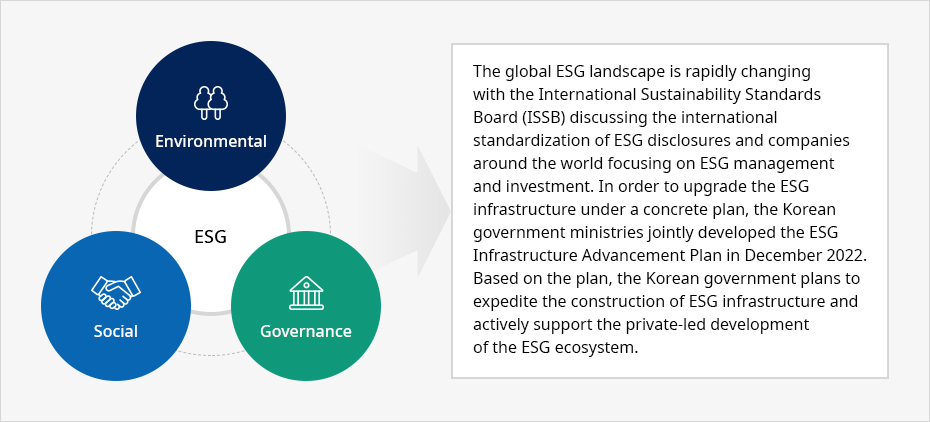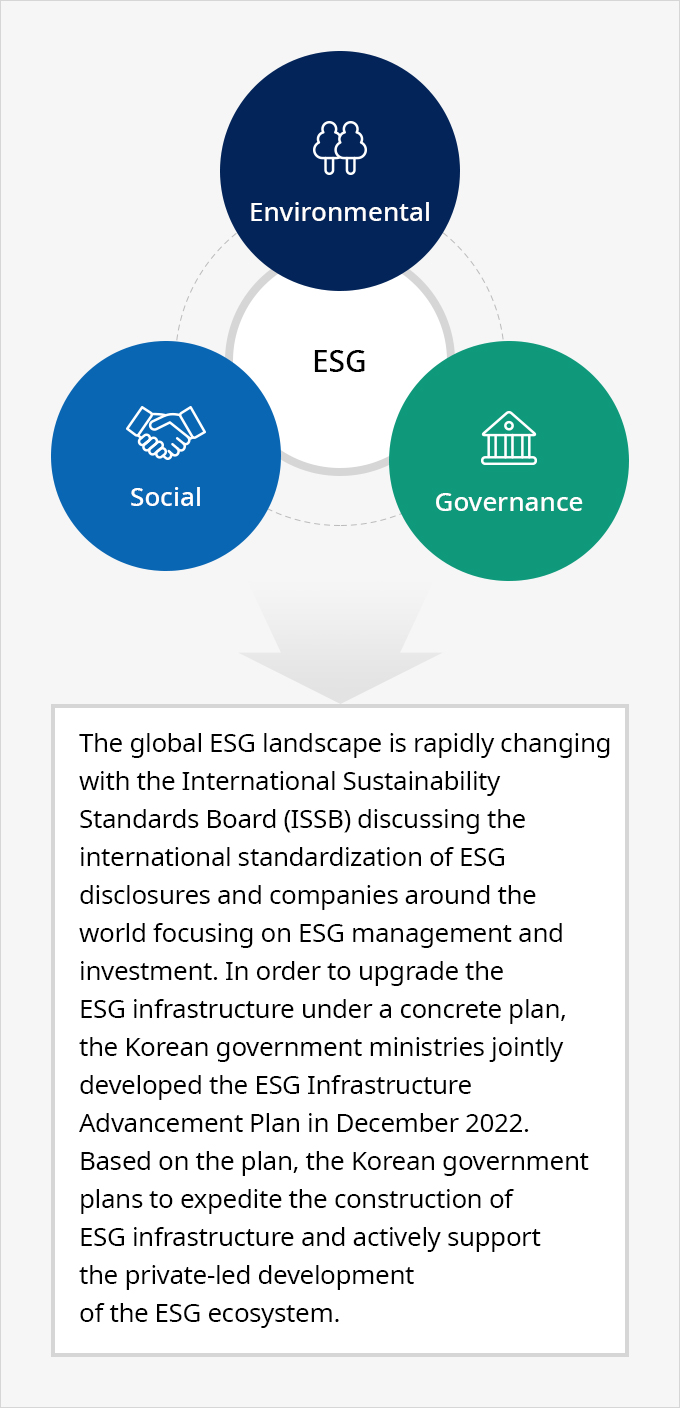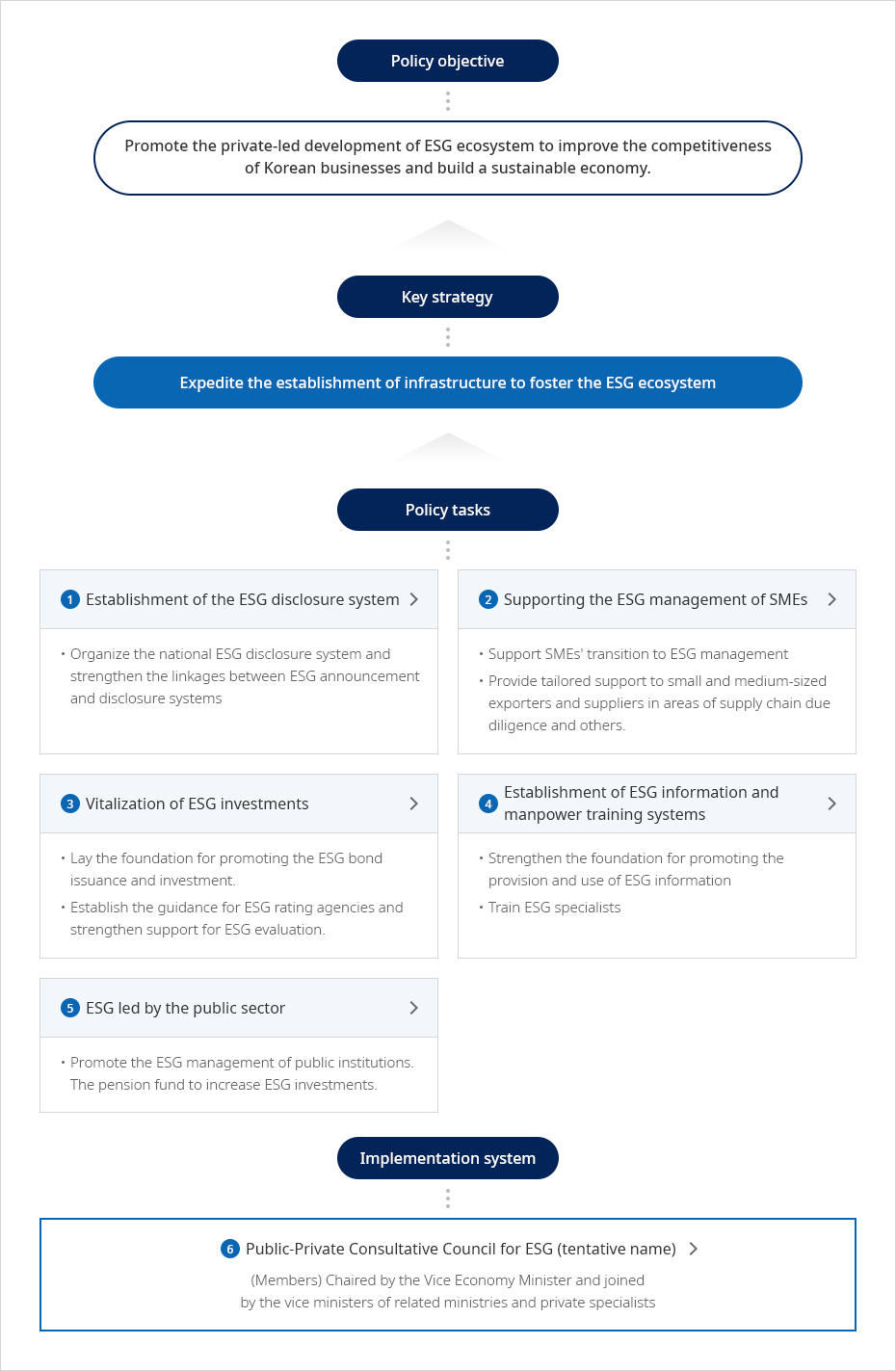ESG Infrastructure Advancement Plan
- Home
- Investment Guide
- Government Policy Trends
- ESG Policy in Korea
- ESG Infrastructure Advancement Plan


- Environmental
- Social
- Governance
The global ESG landscape is rapidly changing with the International Sustainability Standards Board (ISSB) discussing the international standardization of ESG disclosures and companies around the world focusing on ESG management and investment. In order to upgrade the ESG infrastructure under a concrete plan, the Korean government ministries jointly developed the ESG Infrastructure Advancement Plan in December 2022. Based on the plan, the Korean government plans to expedite the construction of ESG infrastructure and actively support the private-led development of the ESG ecosystem.

ESG Policy in Korea: Basic Directions


- Policy objective - Promote the private-led development of ESG ecosystem to improve the competitiveness of Korean businesses and build a sustainable economy.
- Key strategy - Expedite the establishment of infrastructure to foster the ESG ecosystem
- Policy tasks
- 1. Establishment of the ESG disclosure system : Organize the national ESG disclosure system and strengthen the linkages between ESG announcement and disclosure systems
- 2. Supporting the ESG management of SMEs : Support SMEs' transition to ESG management, Provide tailored support to small and medium-sized exporters and suppliers in areas of supply chain due diligence and others.
- 3. Vitalization of ESG investments : Lay the foundation for promoting the ESG bond issuance and investment.,Establish the guidance for ESG rating agencies and strengthen support for ESG evaluation.
- 4. Establishment of ESG information and manpower training systems : Strengthen the foundation for promoting the provision and use of ESG information, Train ESG specialists
- 5. ESG led by the public sector : Promote the ESG management of public institutions. The pension fund to increase ESG investments.
- Implementation system
- 6. Public-Private Consultative Council for ESG (tentative name) : (Members) Chaired by the Vice Economy Minister and joined by the vice ministers of related ministries and private specialists

Actively participate in discussions on international standardization of ESG disclosure by listing Koreans members in ISSB and joining as a member of the Sustainability Standards Advisory Forum (SSAF)* to effectively communicate Korea’s position. Reorganize Korea’s ESG disclosure system** by considering ISSB international standards and domestic industrial conditions to improve the transparency and comparability of Korean companies’ ESG management.
The government plans to ease the burden on companies by strengthening the linkage between the ESG disclosure system and each ministry’s information disclosure system by unifying terms in similar or overlapping provisions and defining the conditions for fulfilling the disclosure obligations.
** Introduce Korea’s ESG disclosure standards by modifying the guidance for ESG information disclosure and the Capital Markets Act, and establish a specific plan for the mandatory disclosure of ESG.










